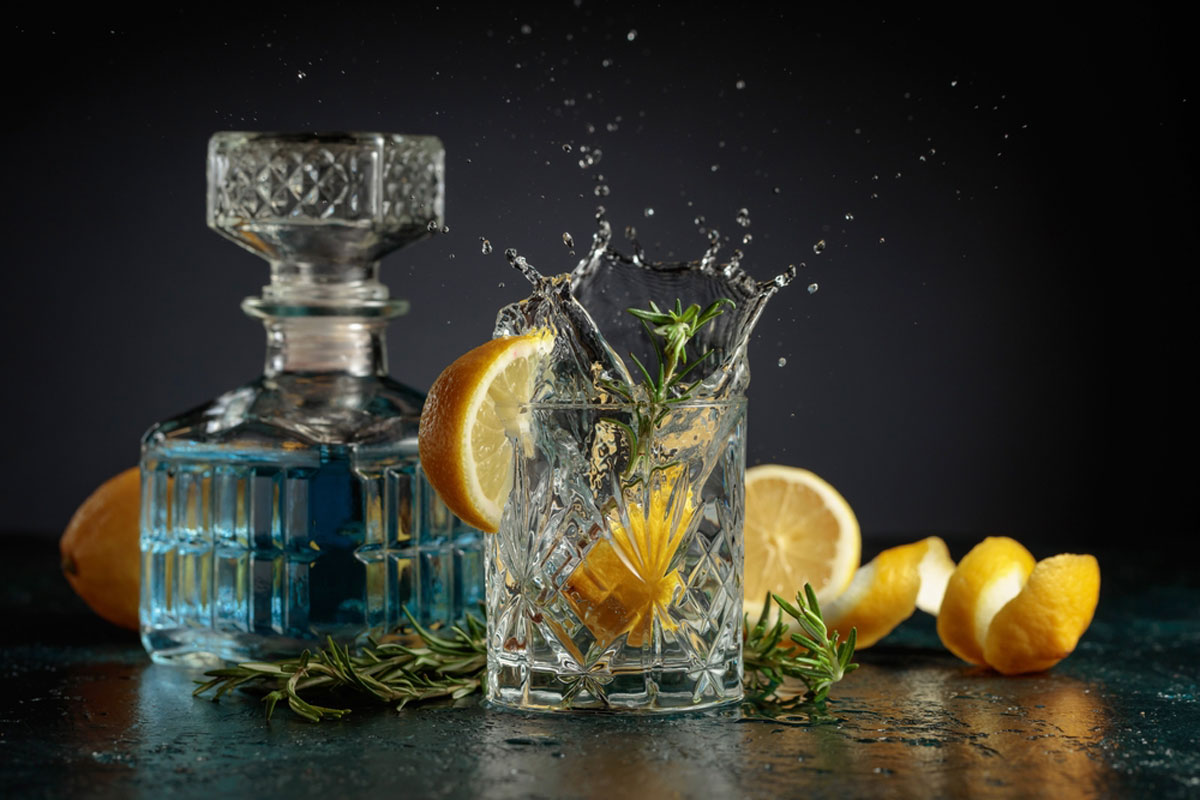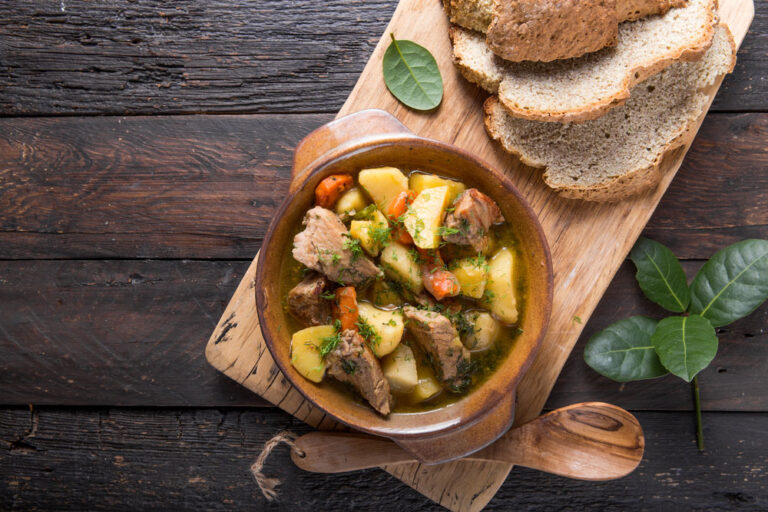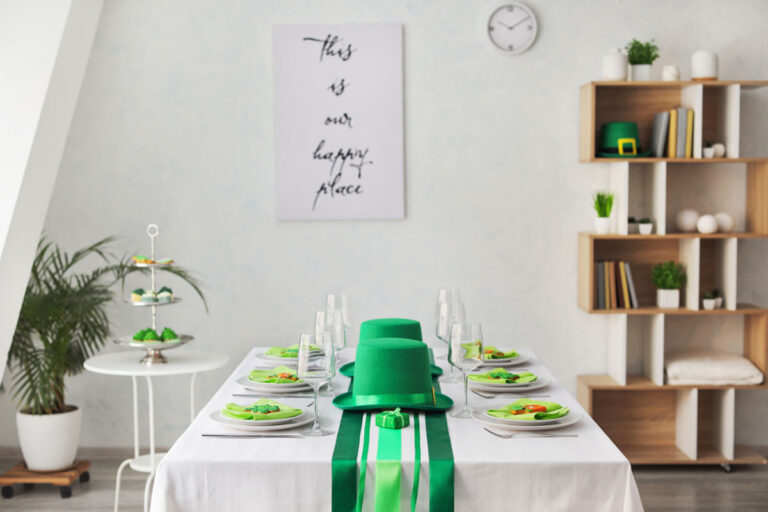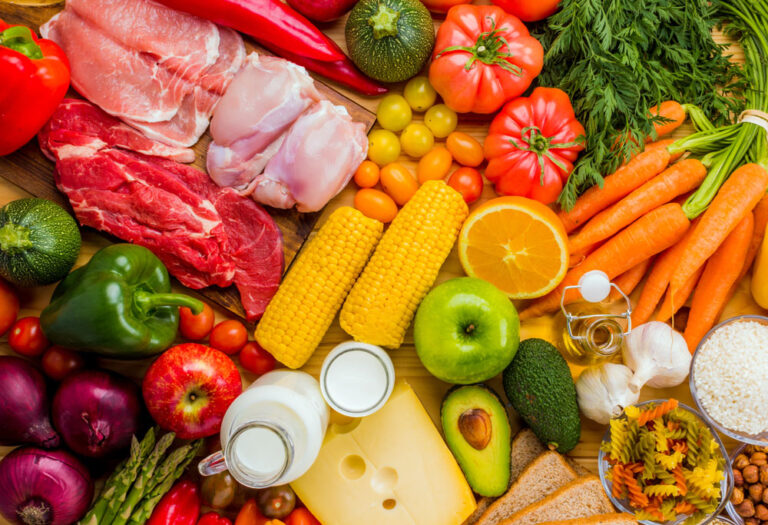The History and Growth of Irish Gin
The story of Irish gin is a modern success tale, emerging in recent decades from the shadows of Ireland’s long-standing whiskey heritage. Traditionally known for its whiskey production, Ireland has increasingly become a hotspot for gin distilleries, offering a new take on craft spirits that combines the country’s rich botanical resources, innovative distilling methods, and a deep-rooted passion for quality. But how did Irish gin go from a niche product to one of the most exciting categories of craft spirits? Let’s explore its origins and growth.
A Revival of Tradition
The history of gin in Ireland dates back to the 1700s, during the so-called “Gin Craze” that swept across Europe. However, it wasn’t until the 19th and early 20th centuries that Irish gin began to be more formally produced. Much like its whiskey counterpart, Irish gin wasn’t initially the focal point of the country’s distilling culture. Instead, whiskey and poteen (an unaged, homemade spirit) dominated the scene.
In the 1990s, however, the global resurgence of interest in craft spirits began to influence Irish distillers. As gin saw a resurgence in the United Kingdom, Ireland began to recognize its potential. The increasing demand for high-quality, small-batch products opened the door for Irish gin to carve out its niche. This revival was influenced by a growing appreciation for artisanal spirits, local ingredients, and unique distilling techniques—trends that helped the Irish gin industry begin to flourish.
The Craft Gin Boom
The rise of Irish gin accelerated in the 2010s, as small distilleries began to pop up around the country. Pioneering brands like The Shed Distillery, Blackwater Distillery, and Dingle Distillery became key players in the movement. These early innovators focused on creating gins that reflected the unique terroir of Ireland—infusing locally sourced botanicals such as wildflowers, herbs, and citrus, as well as some distinctive Irish ingredients like seaweed, bog myrtle, and heather.
The craft gin boom mirrored the larger global trend of consumers turning away from mass-produced spirits in favor of hand-crafted, artisanal beverages. In Ireland, this movement was driven by a strong cultural emphasis on innovation and quality in distilling, creating a spirit that blends the country’s historical traditions with modern experimentation.
A Global Sensation
As Irish gin continued to gain popularity within Ireland, it also started gaining international recognition. Irish distillers took their gins to global competitions, where they earned numerous awards for quality, taste, and innovation. The distinctive flavors and the connection to the Irish landscape captured the imagination of gin enthusiasts around the world.
By the late 2010s, Irish gin was no longer a curiosity; it had become a global phenomenon. This growth was fueled by both domestic consumption and export success, with brands like Waterford Distillery and Gunpowder Irish Gin leading the charge. Gin tourism, where visitors flocked to Ireland’s distilleries for tours and tastings, also played a role in the rise of Irish gin, offering an immersive experience that highlighted the craftsmanship behind each bottle.
Looking Ahead
Today, Irish gin is an integral part of the country’s craft spirits industry. With over 40 distilleries producing gin, the Irish gin sector is diverse, offering a wide array of styles and flavors. Distillers continue to experiment with new botanicals and production methods, further establishing Ireland as a prominent player in the global gin market. As demand for premium, locally-sourced, and sustainably-produced spirits continues to rise, Irish gin’s story is just beginning.
What Makes Irish Gin Unique? The Botanicals and Flavors
One of the key factors behind the rise of Irish gin is its distinct flavor profile, which sets it apart from other gins around the world. While many gins share common botanicals, Irish gin often incorporates local, indigenous ingredients that reflect the country’s unique landscape, culture, and history. The infusion of these botanicals not only creates a memorable taste but also tells the story of Ireland’s natural beauty and heritage.
Local Botanicals: Harnessing the Irish Landscape
Irish distillers take full advantage of the country’s varied ecosystems to craft gin that embodies the flavors of the land. From the rugged coastlines to the lush green hills, Ireland is home to an incredible array of plants and botanicals that thrive in its temperate climate. Some of these ingredients are used in Irish gin recipes to add complexity, depth, and a sense of place.
Notable botanicals in Irish gin include:
- Heather: Known for its floral and earthy notes, heather is often used to add a soft, aromatic quality to Irish gin.
- Bog Myrtle: A distinctly Irish botanical, bog myrtle imparts a herbal, slightly citrusy flavor and is often associated with the country’s ancient peat bogs.
- Seaweed: With Ireland’s proximity to the Atlantic, seaweed is a popular botanical in many Irish gins, contributing a briny, coastal flavor. Varieties like dulse and carageen moss add unique umami notes.
- Juniper: Like all gins, juniper berries are the backbone of the flavor profile, but Irish gins often use wild juniper found in local woodlands, giving a fresh, clean taste that is slightly more piney.
- Citrus fruits: Ingredients like lemon, lime, and orange peel are frequently used, adding brightness and balance to the gin’s flavor.
These botanicals are often handpicked from Irish wildlands or cultivated by local farmers, ensuring the freshest ingredients go into each batch. By highlighting such distinctive ingredients, Irish gin stands out in the world of spirits for its ability to deliver a taste of the Irish countryside in every sip.
The Influence of Ireland’s Climate
Ireland’s cool, damp climate is a critical factor in shaping the flavor of its botanicals. Unlike the Mediterranean climate where many traditional gin botanicals are grown, Ireland’s mild temperatures and abundant rainfall create a distinct growing environment. The slower growth of plants in these conditions tends to result in more concentrated, aromatic flavors. Additionally, the misty and temperate weather allows certain botanicals, like seaweed, to flourish, contributing their own marine and earthy characteristics to Irish gin.
The climate also plays a role in the distillation process. Many Irish distillers focus on sustainable practices, using traditional copper pot stills that allow for slow, precise distillation. This careful approach enhances the clarity of the gin’s flavors, letting each botanical shine through without being overpowered. The result is a smooth, balanced spirit with a distinct, terroir-driven character.
Innovative Distilling Techniques
The methods used by Irish distillers are another contributing factor to the uniqueness of Irish gin. While there are traditional gin-making techniques that are widely used, Irish distillers have honed their craft, experimenting with innovative approaches that set their gins apart.
One of the most notable distilling techniques used in Ireland is vacuum distillation, a method that allows distillers to extract delicate flavors from botanicals at lower temperatures, preserving the more subtle aromatics. This innovation has been championed by distilleries like Waterford Distillery, which focuses on creating gin with an emphasis on high-quality ingredients and a refined distillation process.
Another technique commonly used in Irish gin production is maceration, where botanicals are steeped in alcohol for a period of time before being distilled. This process allows for the extraction of rich flavors and ensures the gin retains the full character of the botanicals. Distilleries often experiment with the length of the maceration process and the specific botanicals used, further adding to the unique flavor profiles found in Irish gin.
Additionally, some Irish distilleries have embraced collaboration with local farmers and foragers, ensuring that their botanicals are not only locally sourced but also cultivated with care and sustainability in mind. These relationships with local producers not only support the community but also lead to exciting and rare flavor combinations that can’t be found anywhere else.
The Art of Blending
Many Irish gin makers also focus on the art of blending—combining different distillates from multiple botanicals to create harmonious, well-rounded flavors. These blends may feature traditional notes of juniper and citrus, but they also incorporate more unexpected botanicals, like wildflowers or herbs from Ireland’s ancient woodlands.
Crafting the perfect blend requires an intimate knowledge of each botanical’s flavor profile and how they interact with one another. This expertise allows Irish distillers to push the boundaries of what gin can be, making each bottle a unique and thoughtful creation. Whether it’s a gin with bright citrus notes and a touch of seaweed or one with floral, earthy undertones, the blending process is integral to the identity of Irish gin.
Sustainability and Local Sourcing
A hallmark of the Irish gin industry is its emphasis on sustainability and local sourcing. Many Irish distilleries prioritize the use of organic and locally-grown botanicals, which not only supports the local economy but also reduces their environmental footprint. The focus on using natural, homegrown ingredients means that Irish gin production is often rooted in a deep respect for the land, which is reflected in the purity of the final product.
As the global demand for sustainable spirits continues to rise, Irish gin is well-positioned to be at the forefront of the green movement within the craft spirits industry. Distillers are adopting eco-friendly practices such as using recyclable packaging, sourcing renewable energy, and minimizing waste in production. This focus on sustainability complements the overall ethos of Irish gin—an industry that celebrates tradition while looking toward a responsible, innovative future.
What makes Irish gin unique is its remarkable ability to combine the country’s rich botanical resources, innovative distillation methods, and commitment to sustainability. By focusing on local, indigenous ingredients and traditional techniques, Irish gin offers a distinctive flavor experience that captures the essence of the land it comes from. With each sip, you can taste the wild landscapes, the botanical diversity, and the passion of Irish distillers who are reshaping the global gin scene.
Notable Irish Gin Brands: Innovators Leading the Charge
As the Irish gin industry continues to grow and evolve, several distilleries have risen to prominence, earning both local and international acclaim for their unique products. These brands represent the innovation, quality, and craftsmanship at the heart of the Irish gin revolution. From pioneering distilleries to exciting newcomers, the following brands have each contributed to defining the landscape of Irish gin with their distinctive spirits and inventive approaches.
1. Dingle Distillery – A Pioneer in the Craft Gin Movement
One of the most celebrated names in Irish gin, Dingle Distillery was founded in 2012 and quickly became a pioneer in the craft distilling scene. Located in County Kerry, Dingle has gained global recognition for its high-quality gin, which is crafted using local botanicals. Dingle Gin, their flagship product, is a smooth, well-balanced spirit featuring a blend of traditional juniper berries and locally sourced ingredients like bog myrtle, heather, and rowan berries. The distillery’s use of copper pot stills and its commitment to small-batch production ensure a consistently exceptional gin that reflects the wild, coastal beauty of Ireland’s southwest.
Notable product: Dingle Original Gin
This gin is a true expression of place, with a delicate combination of fresh citrus, floral botanicals, and a hint of spice. It’s versatile and ideal for classic gin cocktails like the gin and tonic or martini.
2. Gunpowder Irish Gin – A Flavor Revolution
Gunpowder Irish Gin is produced by The Shed Distillery in County Leitrim and has made a name for itself due to its innovative approach to flavor. The distillery uses a distinctive method called “gunpowder tea infusion”, which involves the use of a traditional Chinese green tea known as gunpowder tea. This creates a unique, herbal flavor profile that sets it apart from other gins. The gin is also infused with a selection of botanicals, including juniper, orange peel, and coriander, balanced with the earthy, slightly smoky notes from the gunpowder tea.
Notable product: Drumshanbo Gunpowder Irish Gin
This gin is one of the most popular and awarded in Ireland, known for its aromatic, herbal complexity and smooth finish. It has become a favorite for gin connoisseurs who appreciate its bold flavor and unique twist on traditional gin-making methods.
3. Blackwater Distillery – The Return to Tradition
Located in County Waterford, Blackwater Distillery specializes in creating small-batch, handcrafted spirits that embrace Ireland’s rich distilling heritage. Blackwater’s approach is rooted in traditional distillation methods, and they pride themselves on sourcing a variety of botanicals, many of which are foraged from the wild landscape. Their gins, which include Blackwater No.5 and Blackwater Juniper Cask Gin, feature a perfect balance of juniper, citrus, and earthy notes, enhanced with botanicals like elderflower and angelica root.
Notable product: Blackwater No.5 Gin
This gin is a nod to both Ireland’s and the world’s gin history, offering a balanced and crisp profile with bright citrus and fragrant herbs. It’s an ideal spirit for those who appreciate a classic gin with a contemporary twist.
4. Waterford Distillery – A Focus on Terroir
While Waterford Distillery is better known for its whiskey, it has made a notable impact in the gin world with its small-batch releases. The distillery focuses on terroir, which refers to the unique qualities imparted by the environment where the ingredients are grown. Waterford’s commitment to using locally grown, Irish-grown barley, wildflowers, and herbs in their gin production speaks to their belief that the landscape truly shapes the flavor profile of their products. Their gin reflects this philosophy by offering complex and vibrant flavors that evoke the lush Irish countryside.
Notable product: Waterford Single Farm Gin
This gin features a blend of locally grown botanicals from single farms across Ireland, bringing out the distinctive characteristics of the land in each bottle. The result is a gin with a well-rounded, earthy flavor that is as innovative as it is reflective of the region’s unique terroir.
5. The Irish Gin Company – Crafting an Irish Classic
The Irish Gin Company is a relatively new player but has quickly gained attention for producing high-quality, small-batch gins that showcase the best of Irish craftsmanship. Using a selection of botanicals sourced from all over Ireland, this distillery focuses on creating gins that are both sophisticated and refreshing. Their spirits are known for their smooth texture and balanced flavors, making them a hit with both gin enthusiasts and casual drinkers alike.
Notable product: The Irish Gin Company Dry Gin
This classic dry gin combines juniper with delicate floral and citrus notes, delivering a clean, crisp taste. It’s an ideal gin for classic cocktails or sipping on its own with a touch of tonic.
6. The Wild Mayflower Distillery – A Newcomer with a Bold Vision
A relatively recent addition to the Irish gin scene, The Wild Mayflower Distillery in County Tipperary is focused on creating high-quality, small-batch gins that reflect the wild landscapes of Ireland. Their gin is made with a mix of traditional botanicals and lesser-known local plants, such as elderberry and wild fennel, which contribute to the gin’s unique flavor profile.
Notable product: Wild Mayflower Gin
This gin is fresh and vibrant, with bright citrus notes, herbal undertones, and a subtle floral finish. Its crisp taste and unique botanicals make it an exciting addition to the ever-growing Irish gin market.
7. Blackhill Distillery – Mastering the Botanical Blend
Based in County Cork, Blackhill Distillery is known for its handcrafted, premium gins that feature bold, botanical blends. The distillery sources a range of locally grown herbs and plants, including rose petals, hawthorn berries, and gorse, which infuse their gin with delicate, floral flavors. The meticulous attention to detail in the distillation process and the use of Irish-grown botanicals has earned Blackhill’s products a loyal following.
Notable product: Blackhill Botanical Gin
This gin stands out for its floral complexity and well-rounded flavor, with a delicate mix of wildflowers, citrus, and aromatic herbs. It’s perfect for those who enjoy an elegant, herbaceous gin.
These brands represent just a small sample of the exciting and diverse world of Irish gin. Whether using local herbs and flowers, experimenting with unique distilling methods, or focusing on the terroir of the land, each distillery brings something special to the table. As Irish gin continues to gain momentum on the global stage, these innovative distilleries will undoubtedly continue to shape the future of this vibrant and dynamic spirit, ensuring that Irish gin is recognized as a category with exceptional quality, creativity, and depth.
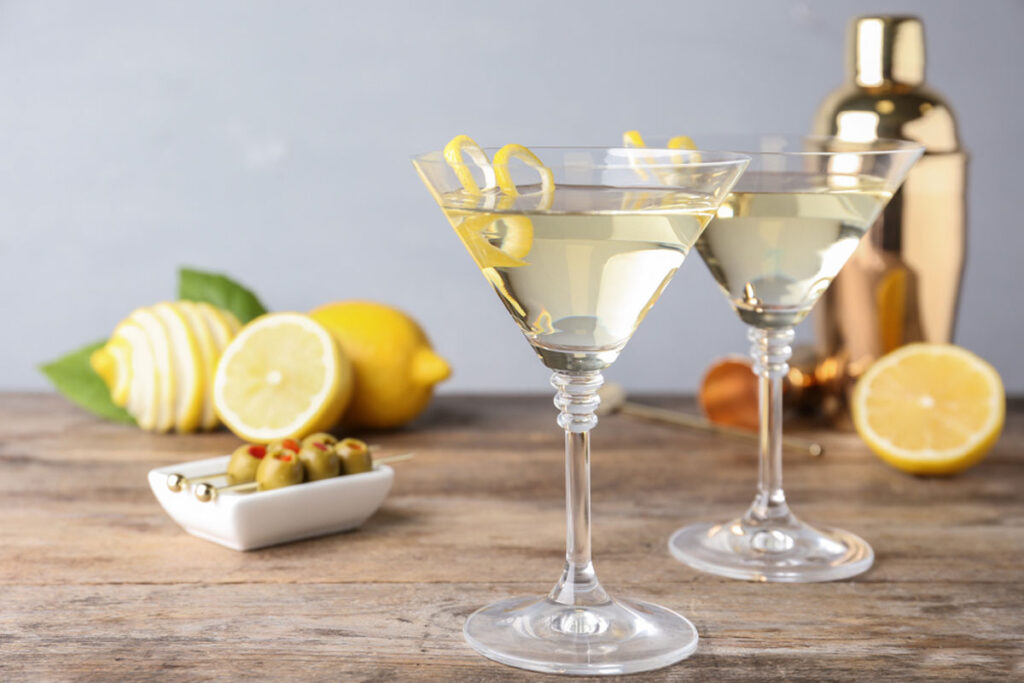
The Art of Pairing Irish Gin: Elevating Your Drinking Experience
One of the most exciting aspects of the Irish gin revolution is the opportunity to explore different ways to enjoy these unique spirits. With their diverse range of botanicals, flavor profiles, and subtle nuances, Irish gins are perfect for pairing with a variety of mixers, garnishes, and even food. The right pairing can bring out the best in your gin, highlighting its distinctive characteristics while enhancing the overall drinking experience.
1. The Classic Gin and Tonic
A classic gin and tonic is the most popular and traditional way to enjoy gin. However, the choice of tonic water and garnishes can completely transform the experience, especially when paired with an Irish gin. The botanicals in Irish gin, ranging from juniper and citrus to floral and herbaceous notes, blend beautifully with the sharp, effervescent quality of tonic water.
Pairing Tips:
- Tonic Water: For a balanced drink, opt for a high-quality tonic with minimal sugar. Light or Mediterranean-style tonics tend to complement the floral and citrus notes in Irish gin without overpowering them.
- Garnishes: Fresh citrus slices (lemon, lime, or grapefruit) are a classic choice, but don’t be afraid to experiment with herbs like rosemary, thyme, or basil. A sprig of fresh mint can also add a refreshing element to your drink.
Recommended Pairing:
- Dingle Gin + Mediterranean Tonic + Lemon Peel
The crisp, citrus-forward Dingle Gin pairs beautifully with a clean Mediterranean tonic, allowing the gin’s floral and herbal notes to shine. A twist of lemon peel enhances the fresh, vibrant character of this pairing.
2. Irish Gin in Cocktails: Elevating Classic Recipes
While gin and tonic might be the go-to choice for many, Irish gin shines in cocktails as well. Its unique flavors make it an ideal base for a range of classic cocktails, from the gin martini to more contemporary concoctions. The key to a great cocktail is balancing the botanicals of the gin with complementary ingredients to create a harmonious drink.
Pairing Tips:
- Martinis: A classic gin martini made with Irish gin can be elevated with a touch of vermouth and a garnish of olives or a twist of lemon. The smoothness and complexity of Irish gin lend themselves well to this simple yet sophisticated drink.
- Negronis: For a Negroni, try using an Irish gin with a more robust flavor profile, such as Gunpowder Gin, which pairs nicely with the bitterness of Campari and the herbal undertones of sweet vermouth.
- Gin Fizz: A gin fizz made with Irish gin, lemon juice, simple syrup, and soda water is refreshing and light. Add a hint of orange blossom or elderflower liqueur for a more floral twist.
Recommended Pairing:
- Drumshanbo Gunpowder Gin + Campari + Sweet Vermouth (Negroni)
The unique, herbal notes of Drumshanbo Gunpowder Gin blend seamlessly with the bitter complexity of Campari and the rich, herbal sweetness of vermouth. It’s an exceptional take on the classic Negroni, with an Irish twist.
3. Irish Gin and Food Pairings: Discovering New Flavor Horizons
While Irish gin is traditionally enjoyed with mixers, it can also be paired with food for an elevated tasting experience. Just as wine or whiskey are paired with meals, gin’s distinctive flavors can complement a variety of dishes, enhancing both the food and the drink.
Pairing Tips:
- Seafood: The botanicals in Irish gin pair particularly well with seafood, particularly shellfish and oily fish like salmon. A gin and tonic with fresh herbs can cut through the richness of seafood, providing a refreshing contrast.
- Cheese: The floral and citrus notes in Irish gin work wonderfully with creamy cheeses, such as goat cheese, brie, or even blue cheese. Try serving a cheese platter with your gin for a sophisticated tasting experience.
- Spicy Dishes: The bright, herbaceous notes of Irish gin can also work well with spicy dishes, balancing out the heat. Think of pairing a gin-based cocktail with spicy Asian or Mexican food.
Recommended Pairing:
- Blackwater No.5 Gin + Oysters
The crisp, clean character of Blackwater No.5 Gin pairs beautifully with the briny freshness of oysters. A gin and tonic with lemon or a martini garnished with a twist of lemon complements the delicate flavors of the shellfish.
4. Pairing Irish Gin with Desserts: Unexpected Harmony
One of the more unconventional yet delightful ways to enjoy Irish gin is by pairing it with desserts. The complex botanical flavors in Irish gin, particularly those with citrus or floral notes, can serve as an excellent accompaniment to sweets, offering an intriguing contrast to the richness of desserts.
Pairing Tips:
- Citrus Desserts: Irish gin’s bright citrus profile makes it a perfect match for desserts like lemon tarts, sorbets, or even a creamy cheesecake with lemon zest. The gin enhances the tartness of lemon and provides a refreshing balance to rich sweets.
- Berry Desserts: Many Irish gins incorporate wild berries such as elderflower, blackberry, or rowan berries. These gins pair beautifully with berry-based desserts like pavlova, berry tarts, or chocolate-dipped strawberries.
Recommended Pairing:
- Drumshanbo Gunpowder Gin + Lemon Curd Tart
The herbal and citrusy notes in Drumshanbo Gunpowder Gin complement the tangy, zesty lemon curd in the tart, creating a refreshing and satisfying contrast between the sweet and the botanically rich gin.
5. Experiencing the Full Range: A Tasting Journey
For those who want to explore the full potential of Irish gin, consider hosting a gin tasting event. By sampling different brands, styles, and flavors of Irish gin, you can discover the wide range of profiles—from the delicate floral notes of Dingle Gin to the bold, herbal qualities of Gunpowder Gin. This will allow you to identify the unique qualities of each gin and how they can pair with different mixers, garnishes, and foods.
Tasting Tips:
- Start with the lightest: Begin your tasting with lighter, more floral gins and work your way toward the more robust, herbal varieties.
- Cleanse your palate: Between tastings, take a sip of still water or a neutral cracker to reset your palate.
- Note the flavors: Pay attention to the flavor profiles of each gin, noting the botanicals, spice levels, and any unexpected flavors that stand out.
Unlocking the Full Potential of Irish Gin
Irish gin offers endless possibilities for pairing with mixers, garnishes, and food. Its versatility and complexity allow it to shine in classic cocktails, refreshing drinks, and even in combination with food to create new and exciting experiences. Whether you’re sipping it on its own, mixing it into a cocktail, or enjoying it with a meal, Irish gin’s unique character makes it a spirit that continues to captivate and inspire.
The Future of Irish Gin: Innovation and Sustainability
The world of Irish gin is not static; it’s evolving, with distillers constantly pushing boundaries to create new flavors, refine production processes, and maintain sustainability. As the demand for artisanal spirits grows globally, Irish gin is becoming a significant player in the international market, and its future looks bright.
1. Innovation in Irish Gin: New Flavors and Techniques
Innovation is at the heart of the Irish gin movement. While traditional gin recipes remain popular, many Irish distillers are embracing experimentation with new botanicals, distillation techniques, and aging processes to create gins that offer distinctive and complex profiles. These innovations are not only attracting new consumers but also giving seasoned gin enthusiasts something new to discover.
- New Botanicals: Distillers are looking to Ireland’s natural landscape for inspiration, incorporating native botanicals like seaweed, heather, rowan berries, and even wild flowers to create gins with a true sense of place. These unique ingredients contribute fresh, local flavors that differentiate Irish gins from other gins around the world.
- Aging Irish Gin: Some distilleries are experimenting with aging gin in casks that were previously used for whiskey or wine. This process imparts additional complexity and smoothness to the gin, making it a more luxurious sipping spirit. Aged gins offer depth and a touch of woodiness that can elevate both cocktails and sipping experiences.
- Flavored Gins: In response to the growing popularity of flavored spirits, Irish distillers are introducing fruit-infused gins. Expect to find gins flavored with everything from apples, blackberries, and elderflower to more exotic ingredients like hibiscus or even coffee.
Example of Innovation:
- The Shed Distillery’s Drumshanbo ‘Ancient’ Gin: This gin combines traditional botanicals with spices from India and Southeast Asia, demonstrating how Irish gin can take on global influences while staying grounded in Irish tradition.
2. Sustainability: The Green Spirit
As the world moves toward sustainability, so too does the gin industry. The rise of sustainable practices in gin production not only supports the environment but also enhances the appeal of Irish gin to eco-conscious consumers. Several Irish gin distilleries are pioneering green practices, from sourcing botanicals responsibly to using eco-friendly packaging.
- Locally Sourced Botanicals: One of the key ways Irish gin producers are reducing their environmental footprint is by sourcing botanicals from local farms and suppliers. By keeping the supply chain short and local, distillers can reduce their carbon footprint and support local agriculture.
- Eco-Friendly Distilling Practices: Many distilleries are adopting energy-efficient distilling practices, including using renewable energy sources and recycling heat from the distillation process. These practices help reduce emissions and make the production process more sustainable.
- Recyclable and Sustainable Packaging: With increasing awareness about plastic pollution, Irish gin distilleries are shifting towards more sustainable packaging options. Many are using glass bottles made from recycled materials or opting for refillable bottle systems to cut down on waste. Some distilleries are also switching to biodegradable labels and reducing the overall amount of packaging used.
Example of Sustainability:
- Blackwater Distillery’s Commitment to Sustainability: Blackwater Distillery is known for its dedication to both quality and sustainability. The distillery uses energy-efficient equipment, locally sourced ingredients, and sustainable practices to ensure their gin production leaves a minimal environmental footprint.
3. The Global Rise of Irish Gin: Expanding Horizons
While Irish whiskey has long been known and loved internationally, Irish gin is rapidly gaining recognition and carving out a niche for itself in the global spirits market. The success of Irish gin can be attributed to the country’s burgeoning craft distilling scene, which focuses on quality, innovation, and local character.
- Exports on the Rise: As Irish gin producers gain recognition at international spirits competitions, the demand for Irish gin in export markets is increasing. Markets such as the UK, the United States, and Australia have become key regions for Irish gin sales. Consumers are eager to try new and artisanal spirits, and Irish gin is well-positioned to capitalize on this trend.
- Craft Distilleries as Ambassadors of Ireland: Many of Ireland’s craft distilleries are embracing their heritage while simultaneously introducing Irish gin to the world. These distilleries not only produce exceptional spirits but also serve as ambassadors for Irish culture and sustainability. Visitors to these distilleries are treated to an experience that immerses them in the spirit of Ireland, from the ingredients used to the traditional distilling methods employed.
- Recognition at Global Competitions: Irish gin has gained significant recognition in international competitions. Distilleries like Dingle, Drumshanbo, and Blackwater have won prestigious awards, showcasing the skill and innovation coming out of Ireland’s distilling community.
4. Trends to Watch in the Irish Gin Industry
As we look to the future, there are several trends that are likely to shape the evolution of Irish gin over the next decade.
- Collaborations with Local Breweries and Wineries: In an effort to push the boundaries of flavor, Irish gin distillers are likely to continue collaborating with local breweries and wineries. These partnerships could lead to the creation of gin-wine hybrids or gins aged in beer barrels, offering a fresh twist on both spirits.
- The Influence of Sustainability and Wellness: As wellness trends continue to influence consumer behavior, there may be an increased focus on health-conscious gin options. Expect to see gins with fewer additives, lower sugar content, and organic botanicals, catering to a growing segment of health-conscious drinkers.
- Culinary Gins: There is potential for further exploration into the world of culinary gins, where distillers experiment with savory botanicals and flavor profiles that are tailor-made for pairing with specific foods. These gins could be marketed as the perfect accompaniment to gourmet meals or fine dining experiences.
A Bright Future for Irish Gin
The future of Irish gin is undoubtedly exciting, with innovation, sustainability, and global expansion driving its growth. As consumers become more discerning and environmentally conscious, Irish gin producers will continue to embrace new practices, push the boundaries of flavor, and offer unique, locally inspired spirits. Whether enjoyed in a classic cocktail, paired with food, or sipped neat, Irish gin is poised to become an enduring symbol of craftsmanship, heritage, and quality on the world stage.




